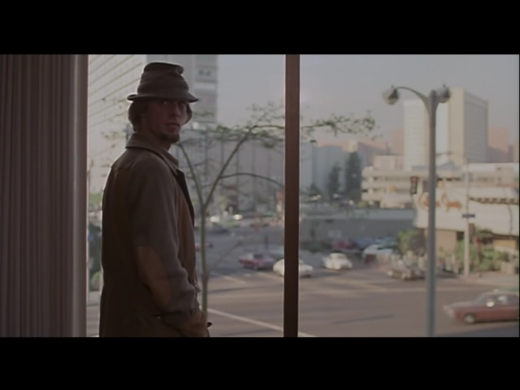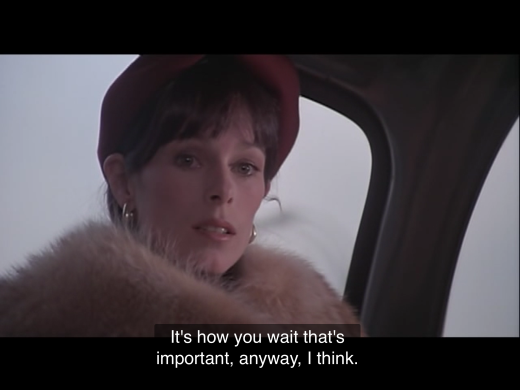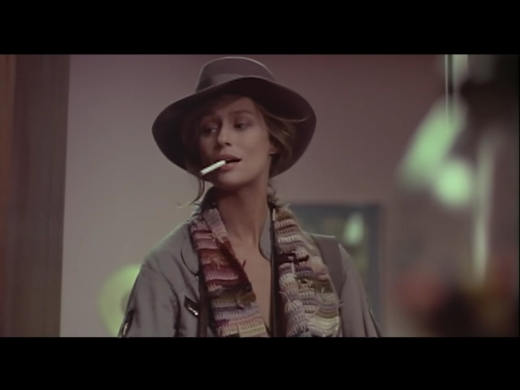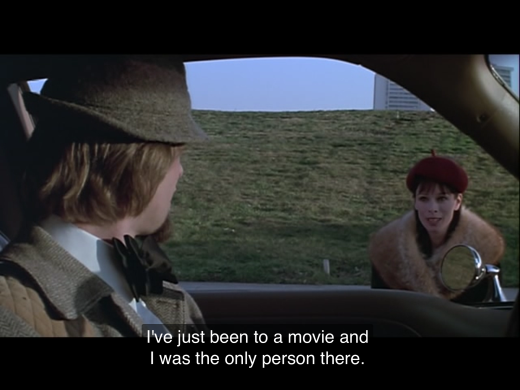
My initial choice for a Cinema Shame confession was Robert Altman’s Nashville, but it led me instead to Alan Rudolph’s Welcome to L.A. which I liked so much more. Rudolph worked with Altman on Nashville and he in turn helped produce this movie. Altman’s style of filmmaking is clearly an influence. Both films feature interweaving narratives, music by Richard Baskin, and some of the same actors. Welcome to LA. is also an ensemble piece, but these characters are representative of the city they live in, rather than what’s going on in the country as a whole.

There’s Carrol (Keith Carradine), a musician returning from London to work with Eric (Baskin) on a new album. Somehow he’s a successful womanizer despite having an appalling proto-hipster half beard which makes him look like Scooby Doo’s pal Shaggy. Carrol takes his music seriously and considers himself “authentic” which almost certainly means he’s a fake. His millionaire businessman father Carl (Denver Pyle) set up the record deal as part of a ruse to get him back home so he can persuade him to take an interest in the business. Carrol is more interested in reaching out towards his dad’s much younger girlfriend Nona (Lauren Hutton), a photographer who dresses like a 1940s’ private eye in a trilby and trench-coat.

Carrol also puts the moves on Anne (Sally Kellerman), the realtor for the house he’s renting. Her husband Jack (John Considine) is obnoxious before he even has a drink in him and has his lecherous eyes on young housekeeper Linda (Sissy Spacek). Linda also seems to have a prior relationship with Ken (Harvey Keitel), who works for Carl and feels put out that the old man intends to hand over the keys to his empire to a returning prodigal son. Carl is a consummate businessman and expects his wife Karen (Geraldine Chaplin) to play the role of the dutiful wife but she’s complicated and maybe a little damaged. She’s given to wandering the city cadging lifts from strangers and delivering monologues straight-to-camera about the impossibility of really knowing another person. “People deceive themselves don’t you think?”

I can certainly see why some critics at the time found it to be pretentious. Richard Eder in the New York Times called it “a fashion pose masquerading as a position.” I liked its artfulness though. These characters are pretentious. They’re all selling themselves or trying to present a version of themselves they would like the world to see, but they can’t hide their pain from us. There’s one moment, a close-up of Lauren Hutton which is held for longer than is necessary until she directs her gaze right back at the camera forcing the viewer out of the narrative for a moment and to observe an actress playing a part. Baskin’s music recurs throughout the film. Sometimes it’s the same song but played a little differently and the repetition gives the impression everybody is moving to the same rhythm and feeling the same way. What really sold me on Welcome to L.A. though is Rudolph being one of the few American directors use Geraldine Chaplin as well as European filmmakers like Carlos Saura or Jacques Rivette did in their movies. She’s the main reason Welcome to L.A. goes on my list of Cinema Shame confessions.
